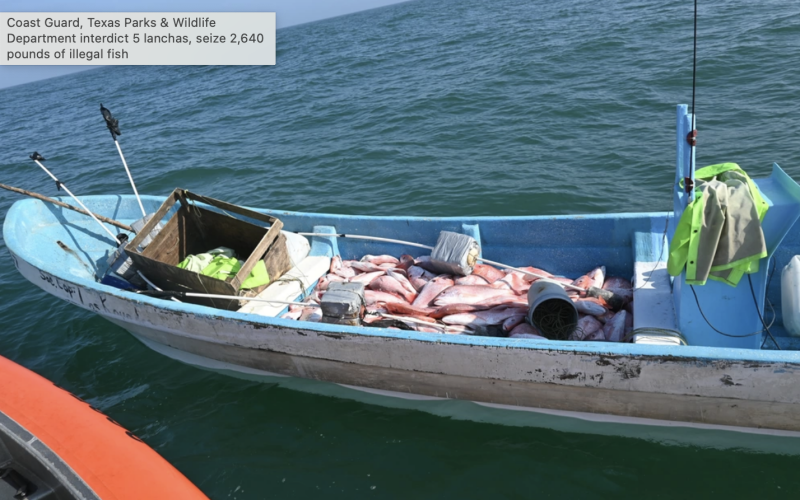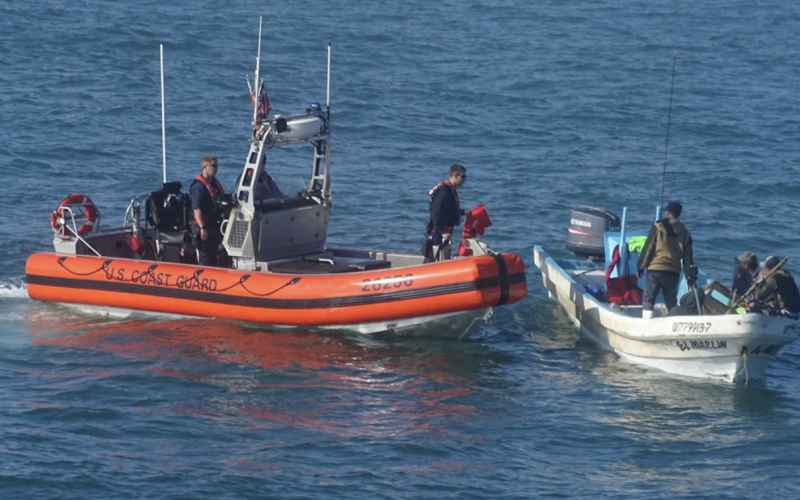The Coast Guard and Texas Parks & Wildlife Department (TPWD) interdicted five Mexican lancha fishing crews and seized about 2,640 pounds of illegally caught red snapper in waters subject to U.S. law enforcement off southern Texas Dec. 9.
Boat crews from Coast Guard Station South Padre Island and the Coast Guard fast response cutter Jacob Poroo worked with aircrews from the Coast Guard air station at Corpus Christi, Texas, to locate and stop four lanchas carrying 16 Mexican fishermen who were fishing illegally north of the U.S.-Mexico Maritime Boundary Line.
The Coast Guard crews seized 2,090 pounds of red snapper, along with fishing gear and high flyers on the boats. Coast Guard cdetained the Mexican fishermen, brought them ashore, and transferred the detainees to U.S. Customs and Border Protection for further processing.
“Illegal, unreported, and unregulated fishing depletes our precious natural resources, disrupts our economy and threatens the marine environment,” said Coast Guard Capt. Hans Govertsen, commanding officer at Air Station Corpus Christi. “We are blessed to work alongside our local, state, federal, and international partners and are fiercely committed to stopping these illegal operations.”
A fifth lancha crew fishing north of the boundary line was spotted by a Corpus Christi aircrew, who alerted a Texas Parks and Wildlife boat crew. The state officers interdicted the lancha and four fishermen, seizing 550 pounds of illegally caught red snapper.
“This case is another example of Texas Game Wardens working with partners to protect and conserve Texas’ natural resources,” said Colonel Chad Jones, Director of TPWD Law Enforcement. “We truly appreciate our partnership with the Coast Guard as we patrol the coastal waterways.”
A lancha is a fishing boat used by Mexican fishermen that is approximately 20-30 feet long with a slender profile, having one outboard motor, and is capable of traveling at speeds exceeding 30 mph. Lanchas are frequently used to transport illegal narcotics to the U.S. and illegally fish in the United States’ Exclusive Economic Zone near the U.S./Mexico border in the Gulf of Mexico.








